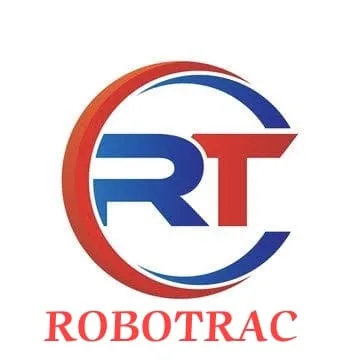What is a robotic tractor?
A robotic tractor, also known as an autonomous tractor, is a farming vehicle equipped with advanced technologies that enable it to perform tasks without a human driver in the cab. These technologies allow the tractor to:
- Perceive its surroundings: Cameras, LiDAR, radar, and other sensors help the tractor “see” and understand its environment, detecting obstacles and mapping the terrain.
- Navigate precisely: GPS and RTK systems provide accurate positioning and guidance, allowing the tractor to follow predetermined paths with high accuracy.
- Make decisions and control movement: Autonomy software processes sensor data, makes decisions based on pre-programmed parameters, and controls the tractor’s movement, steering, and implements.

Applications of robotic tractors:
Robotic tractors offer several potential benefits for the agricultural industry, including:
- Increased efficiency and productivity: They can operate 24/7, maximizing working hours and allowing farmers to complete tasks even during unfavorable weather conditions.
- Reduced labor costs: By eliminating the need for constant human supervision, robotic tractors can potentially reduce labor costs.
- Improved precision: They can perform tasks with greater accuracy and consistency compared to manual operation, leading to better crop yields and resource utilization.
- Enhanced safety: By eliminating the risk of human error, robotic tractors can potentially improve safety in agricultural operations.
- Data-driven decision making: Sensors on robotic tractors can collect valuable data about soil conditions, crop health, and other parameters, enabling farmers to make informed decisions based on real-time information.

The current stage of development:
Robotic tractors are still under development, but several companies are already offering commercial models or conducting pilot programs. The technology is evolving rapidly, and the capabilities and applications of these machines are expected to continue expanding in the coming years.
Here are some examples of companies developing and offering robotic tractors:
- John Deere: Offers the 8R autonomous tractor with various levels of autonomy.
- RoboTrac.in: Developed the VISION02 robot tractor with remote monitoring and operation capabilities.
- AgXeed: Manufactures the AgBot autonomous robot tractor focused on specific agricultural tasks.
Challenges and future outlook:
The adoption of robotic tractors faces challenges, including their initial cost, regulatory hurdles, and concerns about potential job displacement in the agricultural sector. However, the potential benefits of increased efficiency, productivity, and safety are driving continued development and adoption of this technology. As the technology matures and becomes more affordable, robotic tractors are likely to play an increasingly important role in transforming the future of agriculture.

